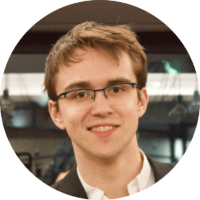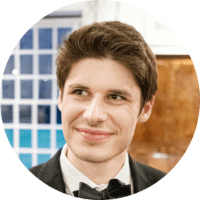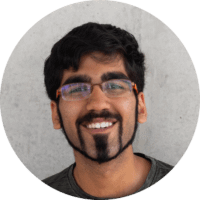Meet our 2022 Summer Research Fellows
We’re excited to introduce you to our 2022 cohort of summer research fellows. These four talented researchers will be joining us in July and August for a seven-week paid internship. Competition for places was very high this year with almost 200 applicants, more than a three-fold increase from the 60 applications we received for last year’s fellowship.
The summer fellows will be working on a range of empirical and theoretical projects that are highly relevant to our research agenda. Their projects will help to deepen our understanding of the nature and measurement of wellbeing and identify cost-effective ways for individuals and governments to increase it.
You can learn more about our 2022 fellows and their research projects below.

Thomas Beuchot
How can the state improve people’s wellbeing?
Thomas will be exploring a range of promising policy interventions through which governments can improve the wellbeing of their populations. Possible areas for investigation include green spaces, housing, migration, reducing unemployment, reducing pollution, and increasing democracy. The project will involve reviewing and summarising the respective literatures on these topics to produce a list of promising policy interventions.

Harry R. Lloyd
How should we do worldview diversification?
Harry is studying for a PhD in Philosophy at Yale University, having completed his BA in PPE at the University of Oxford. In September 2021, he won the Global Priorities Institute’s inaugural graduate essay prize and this summer he is participating in GPI’s Early Career Conference Programme, working on the ethics of time discounting.
There are important philosophical issues to consider when figuring out how to do the most good. Reasonable people can disagree about what wellbeing is, how we account for the badness of death, and population ethics. It is likely that we will remain uncertain about all of these issues. How should we respond to this moral uncertainty? A very popular view, which has yet to receive any sustained scrutiny, is the worldview diversification approach promoted by Open Philanthropy – this requires splitting our resources and assigning some to each plausible worldview. What is the most plausible justification for this view? How plausible is it? How exactly should we diversify amongst worldviews? What practical implications would this have?

Madhav Malhotra
What can individuals do to improve their wellbeing?
Madhav will investigate a range of interventions through which individuals can improve their own wellbeing. How does exercise, engaging in social activities, commuting, spending time in nature, or other interventions influence wellbeing? The project will involve reviewing and summarising the respective literatures on these topics to produce a list of promising paths for individuals to improve their wellbeing. Madhav will also search for sources of detailed data that allow for a more in-depth quantitative analysis to be conducted.

Conrad Samuelsson
Linearity, neutrality, and comparability of responses to subjective wellbeing questions
Conrad will assist our trustee, Dr Caspar Kaiser, to develop and run surveys to investigate three important properties of subjective wellbeing measures:
- linearity – is a change from 4/10 to 5/10 the same as a change from 7/10 to 8/10?
- neutrality – which responses correspond to a point where there is neither positive or negative wellbeing?
- comparability – are answers comparable across respondents and across time?
He will review and revise survey items, come up with new survey items, implement them in appropriate online survey software, and recruit survey participants.
Follow us on social media